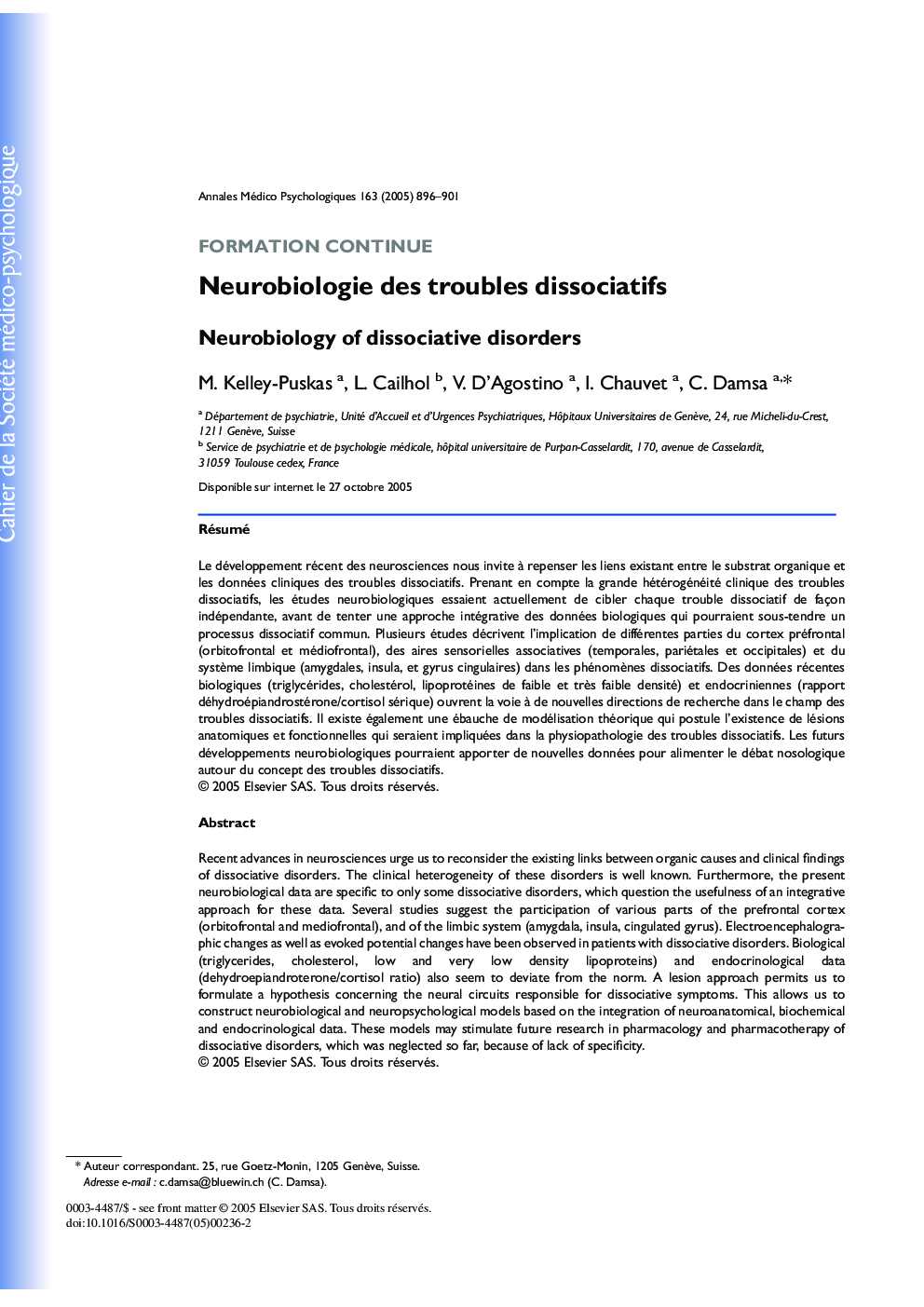| Article ID | Journal | Published Year | Pages | File Type |
|---|---|---|---|---|
| 10297133 | Annales Mdico-psychologiques, revue psychiatrique | 2005 | 6 Pages |
Abstract
Recent advances in neurosciences urge us to reconsider the existing links between organic causes and clinical findings of dissociative disorders. The clinical heterogeneity of these disorders is well known. Furthermore, the present neurobiological data are specific to only some dissociative disorders, which question the usefulness of an integrative approach for these data. Several studies suggest the participation of various parts of the prefrontal cortex (orbitofrontal and mediofrontal), and of the limbic system (amygdala, insula, cingulated gyrus). Electroencephalographic changes as well as evoked potential changes have been observed in patients with dissociative disorders. Biological (triglycerides, cholesterol, low and very low density lipoproteins) and endocrinological data (dehydroepiandroterone/cortisol ratio) also seem to deviate from the norm. A lesion approach permits us to formulate a hypothesis concerning the neural circuits responsible for dissociative symptoms. This allows us to construct neurobiological and neuropsychological models based on the integration of neuroanatomical, biochemical and endocrinological data. These models may stimulate future research in pharmacology and pharmacotherapy of dissociative disorders, which was neglected so far, because of lack of specificity.
Keywords
Related Topics
Health Sciences
Medicine and Dentistry
Psychiatry and Mental Health
Authors
M. Kelley-Puskas, L. Cailhol, V. D'Agostino, I. Chauvet, C. Damsa,
